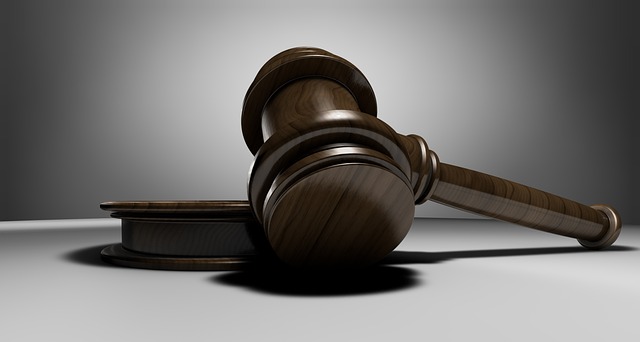Regulatory compliance is paramount in civil law to avoid breach of contract scenarios, which can lead to severe consequences like lawsuits, penalties, and reputational damage. High-profile cases involving tech startups and construction companies highlight the impact of non-compliance. Proactive measures, including legal training, internal controls, and clear documentation, are crucial for businesses aiming for excellence. Legal professionals play a vital role in guiding individuals and companies through complex contracts, interpreting agreements, and mitigating risks, drawing from breach of contract case examples in civil law to achieve favorable outcomes.
Regulatory compliance is a cornerstone of civil law, ensuring that agreements adhere to legal frameworks. This article delves into the intricacies of regulatory compliance issues, offering a comprehensive guide for businesses and legal professionals. We explore common breach of contract scenarios from a legal perspective, highlighting high-profile violations and their impact. Key strategies for prevention and mitigation are presented, alongside the crucial role legal experts play in navigating complex obligations. By understanding these dynamics, stakeholders can navigate contracts with greater confidence, avoiding costly breaches, especially in light of real-world case examples in civil law.
- Understanding Regulatory Compliance: Definition and Importance in Civil Law
- Common Breach of Contract Scenarios: A Legal Perspective
- Case Study: High-Profile Contract Violations and Their Impact
- Strategies for Preventing and Mitigating Regulatory Compliance Issues
- The Role of Legal Professionals in Navigating Contractual Obligations
Understanding Regulatory Compliance: Definition and Importance in Civil Law
Regulatory compliance is a cornerstone of civil law, ensuring that businesses and individuals adhere to established rules and guidelines. It involves understanding and obeying laws related to various aspects of operations, from financial reporting to environmental protection. In civil law, regulatory non-compliance can lead to severe consequences, including breach of contract cases where parties fail to meet their agreed-upon obligations. For instance, a construction company might face legal repercussions if it doesn’t adhere to safety regulations, resulting in an accident and subsequent lawsuits.
Breach of contract case examples abound, highlighting the significance of regulatory compliance. When a respective business fails to comply with relevant laws, it may lead to not only financial penalties but also damage to its reputation and even a complete dismissal of all charges if repeated or serious enough. Avoiding indictment requires proactive measures to stay within legal boundaries, thereby safeguarding the future of the enterprise.
Common Breach of Contract Scenarios: A Legal Perspective
In civil law jurisdictions, breach of contract scenarios are prevalent and can range from simple misunderstandings to complex, high-stakes cases. Common examples include failure to deliver goods or services as promised, non-payment, or variations in the agreed-upon terms. For instance, a supplier might agree to provide a specific quantity of raw materials within a set timeframe but fails to do so, leading to significant disruptions for the respective business relying on those supplies. This not only results in financial losses but also damages the supplier’s reputation and future partnerships.
Achieving extraordinary results in breach of contract cases often requires meticulous legal analysis and strategic planning. Courts will examine the intent behind the contractual terms, considering both written agreements and oral understandings. In high-stakes cases, where substantial damages are at play, lawyers must navigate intricate regulations and precedents to ensure their clients’ rights are protected. This may involve negotiating settlements or, when necessary, taking the case to trial, where the outcome can have far-reaching implications for all parties involved.
Case Study: High-Profile Contract Violations and Their Impact
In the realm of civil law, breach of contract cases serve as potent examples of the consequences that can arise from non-compliance with regulatory obligations. High-profile instances, such as those involving prominent companies or public figures, often grab headlines and shape legal precedents. These violations can span various sectors, from construction to software development, each carrying unique penalties and reputational risks. For instance, a well-publicized case involved a tech startup that failed to honor data privacy promises in its user agreement, leading to not only significant financial settlements but also eroding customer trust and damaging its public image.
The impact of such violations extends beyond monetary fines. They can disrupt entire industries, influence regulatory landscapes, and even have societal implications. The philanthropic and political communities often take notice when companies or individuals avoid indictment through quick compliance, as it reinforces the importance of ethical business practices. Conversely, cases that highlight extraordinary results achieved through proactive regulatory compliance serve as models for others, fostering a culture of accountability and transparency. These examples underscore the critical need for businesses to prioritize contractual commitments and embrace their responsibilities to achieve long-term success while steering clear of legal complications.
Strategies for Preventing and Mitigating Regulatory Compliance Issues
Preventing and mitigating regulatory compliance issues is paramount for businesses aiming to achieve extraordinary results and navigate the complex legal landscape. A robust strategy begins with thorough understanding and ongoing monitoring of applicable laws and regulations. Regular training sessions for employees can ensure everyone stays informed about updates and their implications, significantly reducing the risk of breaches. Additionally, implementing comprehensive internal controls and procedures that align with regulatory requirements acts as a safeguard against potential non-compliance.
For instance, in civil law, breach of contract case examples highlight the consequences of failing to adhere to legal obligations. Businesses must establish clear, documented processes for dealing with regulations, including dispute resolution mechanisms, to promptly address any compliance issues. By fostering transparency and accountability throughout the organization, companies can effectively manage risks and protect themselves from penalties, ensuring their operations remain compliant and sustainable, even in dynamic markets.
The Role of Legal Professionals in Navigating Contractual Obligations
Legal professionals play a pivotal role in guiding individuals and businesses through complex contractual obligations, ensuring they are met and understood. With regulations varying across jurisdictions, especially in diverse fields like civil law, lawyers act as navigators, helping clients steer clear of potential pitfalls. For instance, in breach of contract cases, legal experts can provide insights into the specific terms and conditions that may have been violated, offering practical advice to mitigate future risks. By thoroughly examining contracts, they can identify clauses that protect the interests of their clients, enabling them to avoid indictments and disputes.
These professionals are well-versed in interpreting legal documents, ensuring clients’ rights and obligations are accurately defined. They assist in drafting clear and concise agreements, reducing ambiguity and potential breaches. Moreover, when faced with contractual disagreements, lawyers can mediate or represent their clients in court, drawing from relevant case examples in civil law to advocate for favorable outcomes. Their expertise is invaluable in fostering trust between parties, encouraging adherence to legal standards, and upholding the integrity of contracts within the philanthropic and political communities.
Regulatory compliance is an indispensable aspect of civil law, and understanding contractual obligations is key to preventing costly breaches. As highlighted through real-world examples like high-profile contract violations, the consequences can be severe. By implementing robust strategies and leveraging legal professionals’ expertise, organizations can effectively navigate complex regulatory landscapes. Staying informed about common breach scenarios and staying compliant not only protects businesses but also ensures a fair and transparent legal environment in various industries.






